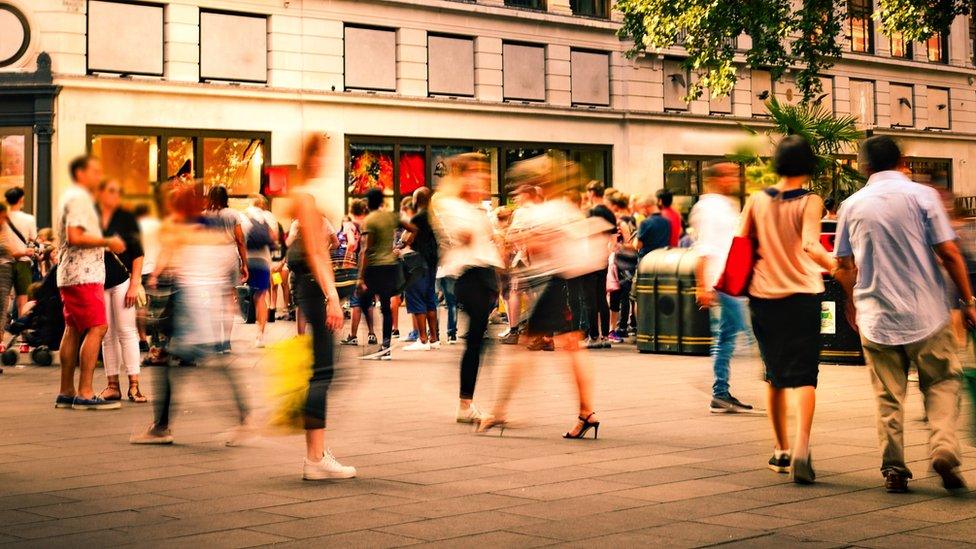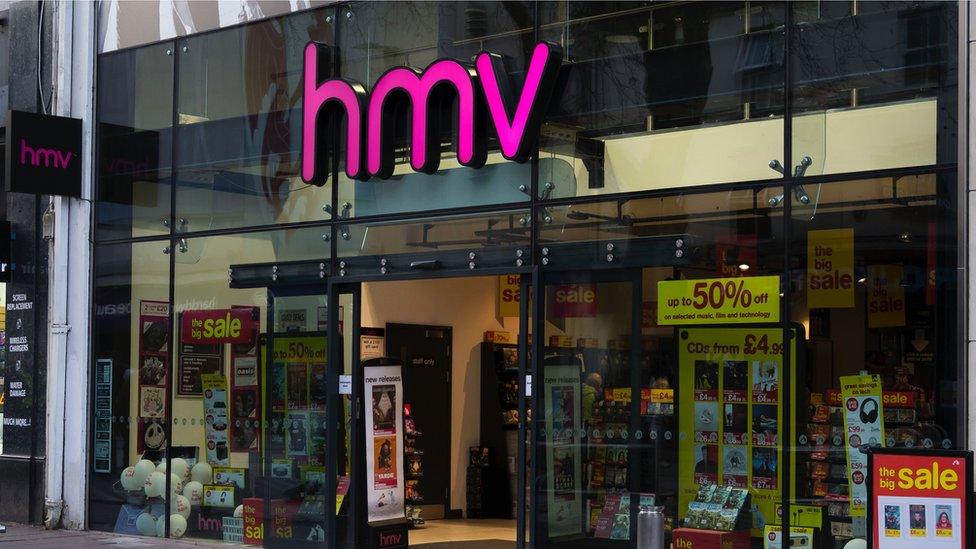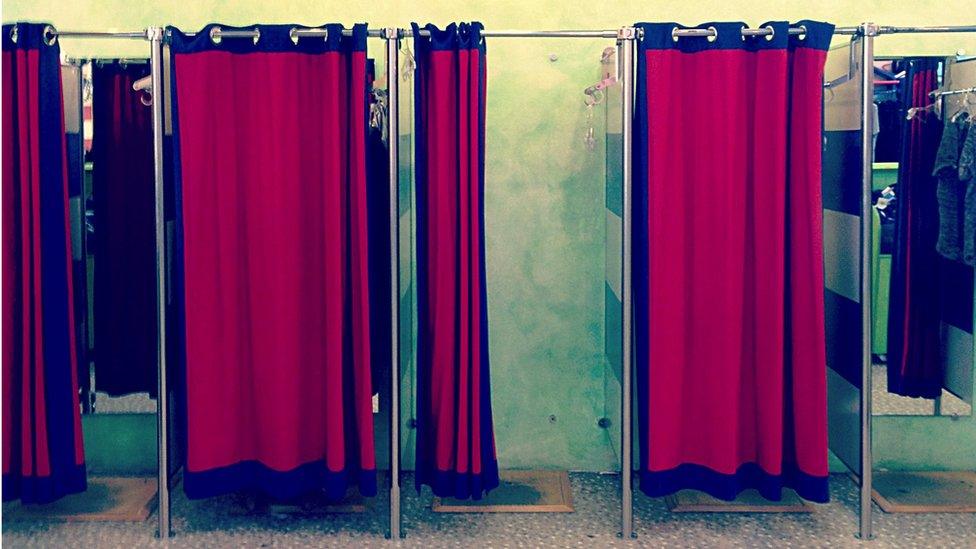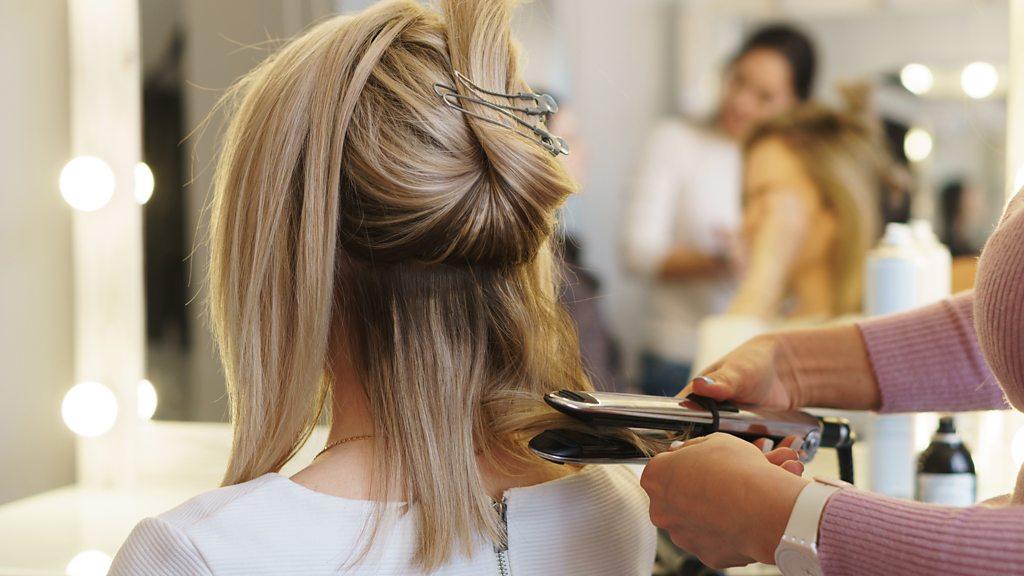Screens and sanitiser: The High Street's new normal
- Published

Opening times checked ... debit cards primed and ready.
Shoppers in England are contemplating something that would have been unthinkable a few weeks ago - a trip down the high street.
As coronavirus restrictions ease, all shops in England selling non-essential goods will be able to open from 15 June.
But, as with so many other areas of life, things will look and feel very different.
Radio 1 Newsbeat has been hearing from two major retail chains about some of the changes we can expect.

Doug Putman rescued HMV in 2019
For Doug Putman, it's a tense time to be reopening. "Obviously HMV was bankrupt 16 months ago ... so certainly we did not plan a situation like this," he tells Newsbeat
The Canadian businessman rescued the chain from bankruptcy last year, and he's been hard at work preparing for what will be a crucial reopening.
"We've taken out some fixtures, added some space so there's more ability to have social distancing."
And if you're feeling anxious about browsing, you don't even have to go inside. There will be staff at the front of the shop who will go in and grab whatever you need - "basically a personal shopping experience," says Doug.
But if you go inside... what about the classic record shop experience of riffling through the vinyl or DVDs? How will that work in a post-pandemic high street? Will someone take away anything you've touched and quarantine it?
No, is the short answer. "Returns, obviously, we're going to quarantine for 72 hours," Doug tells Newsbeat. But "as far as the flipping through the bins (goes) ... I think what we all have to remember is people have been going to grocery stores for months now and ... when you touch a box of cereal, they don't isolate that box of cereal for 72 hours. HMV is going to be the same."
"So we're going to have (hand) sanitising before you can flip through ... we feel that that gives a clean environment. We're going to continue to clean constantly."
Trying on t-shirts is out though: "a lot of people do the old 'lift it up, look at and say, yeah, it's about my size.' So, I think we're going to have that happen a lot more."
Trying on clothes - or the lack of it - will be a bigger challenge for other chains.
John Young is Regional Sales and Operations Manager for JD Sports and he tells Newsbeat, "obviously the biggest change (in the clothing department) will be, there won't be fitting room facilities. But to combat that we've extended our refund policy to 60 days."

No need to awkwardly undress behind a curtain in the "new normal"
"There will be exclusion zones around the benches, and if they want to try the footwear on we've got disinfectant sprays which we'll be using before and after you try the shoes on."
"When you get to the cash desks. the queuing systems will be slightly larger than normal ... and you'll have screens at the cash desk."
"I've been in the business for 15 years, and this is probably one of the biggest operational challenges we've had. But obviously, the most important thing to do when we welcome people back into the store is giving them confidence that it's a safe environment."
Will shoppers feel confident enough to come out and give retail chains the footfall they desperately need? Only time will tell.
But in the meantime Doug Putman thinks more government help might be needed.
He told us that the furlough scheme, which has paid some staff wages, has been "a massive help."
"But," he goes on, "I do struggle to see, without more intervention, what happens ... You know, landlords have to pay their bills as well."
"And so yeah, I believe the government's going to have to do a little bit more to make this a viable long term option."
A spokesperson for the UK government told us: "Taken in its entirety, the UK's wide-ranging package of support is one of the most generous in the world ... Our job retention scheme has protected 8.9 million jobs and will remain open until October".
"We will continue to look at how to adjust our support in a way that ensures people can get back to work."


Follow Newsbeat on Instagram, external, Facebook, external, Twitter, external and YouTube, external.
Listen to Newsbeat live at 12:45 and 17:45 weekdays - or listen back here.
- Published12 June 2020

- Published9 June 2020

- Published27 May 2020
